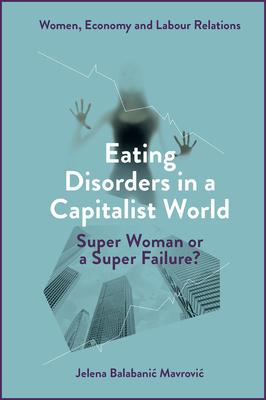Feminist critique has yet to deconstruct the new ’superwoman’ ideal: the modern woman who can and must have everything, but who, in reality, is never good enough. This media myth is fertile ground for harmful practices that focus on a woman’s own body and of course for specific consumerist behaviours. Media equalization of success, self-control, and attractiveness with a thin, healthy body frame these achievements as individual responsibility. Thus, in a society where women can now do anything, only the woman herself can be blamed if she does not achieve her full potential.
Combining scientific approach with personal voices, Eating Disorders in a Capitalist World presents a critical analysis of the social context of eating disorders based on in-depth interviews with women suffering from anorexia and bulimia. Employing a variety of influential socio-cultural theories, Jelena Balabanic Mavrovic closely relates various environmental influences on the development of low self-esteem, poor self-image and body dissatisfaction to the shaping of normative femininity and the experience of gender socialization in Western society. Chapters also provide a detailed review of the socio-historical development of discourses and practices related to anorexia and bulimia, including ’healthism’, the war on obesity, and other current trends.
Providing a new perspective on female identity, Eating Disorders in a Capitalist World offers a complete insight into the world of eating disorders in today’s society, exposing how new forms of freedom for women have also become new forms of self-surveillance.

 看圖書介紹
看圖書介紹









